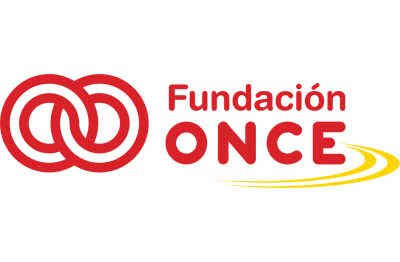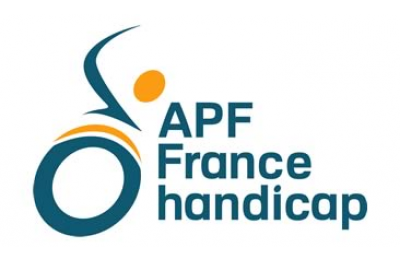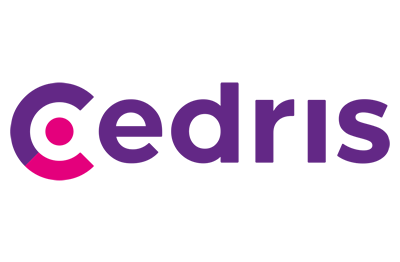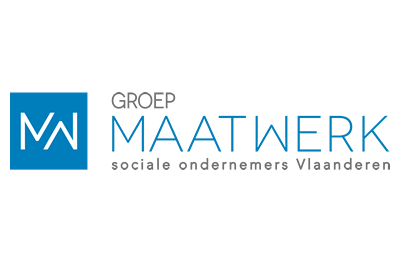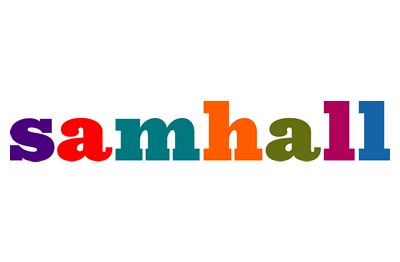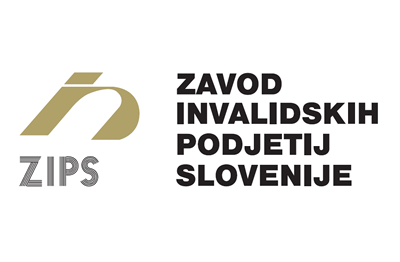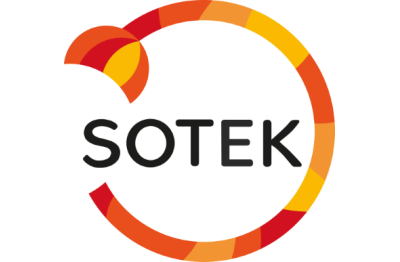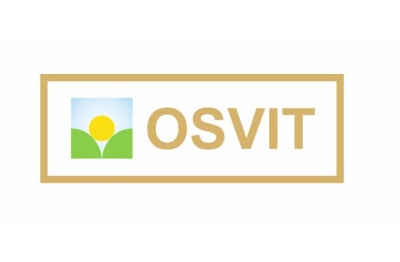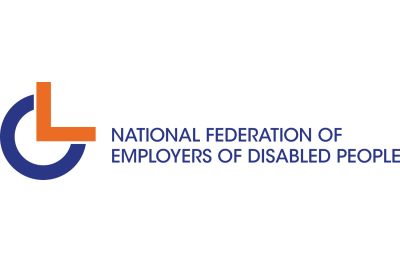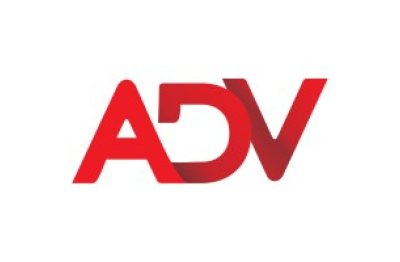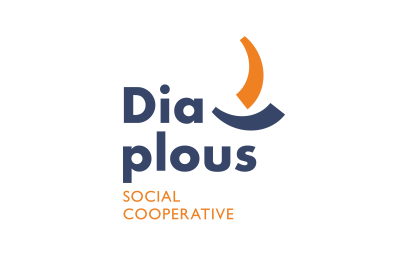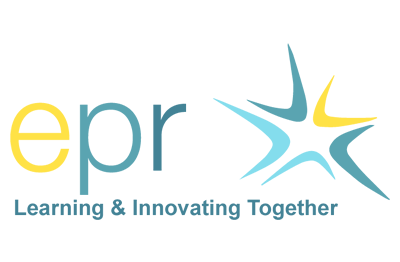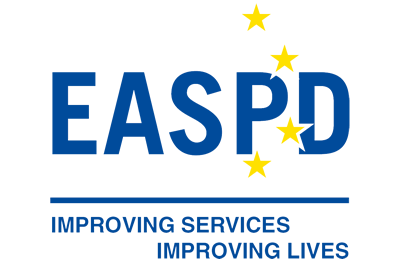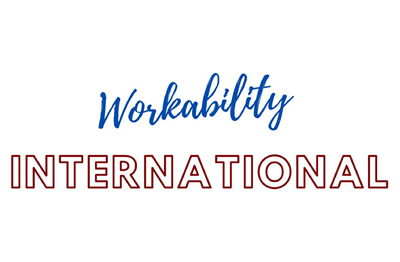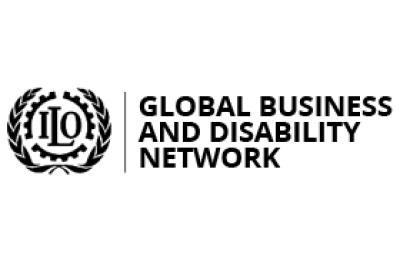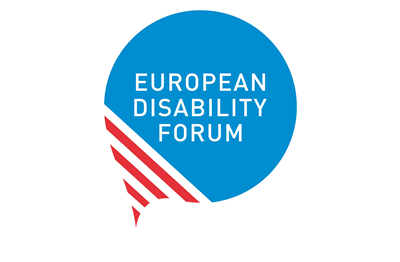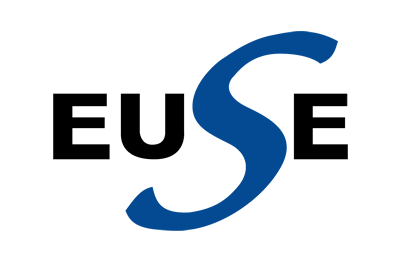
Partners
National partners
-
Fundación ONCE (Spain)
Fundación ONCE’s mission is to promote the equality and the inclusion of people with disabilities and their families, with a special focus on training, employment and universal accessibility of products, services and environments. It was founded by ONCE (the National organization of the blind in Spain) in 1988 and its board of trustees includes the main Spanish organizations of persons with disabilities, including CERMI (the Spanish Disability Umbrella Organization). Fundación ONCE belongs to the ONCE Social Group, which owns a social business group, ILUNION, which aims at creating quality employment for persons with disabilities. ILUNION has over 50 business lines, and employs around 38.000 professionals, 40% of which are persons with disabilities.
-
APF France handicap (France)
APF France handicap (formerly “Association des Paralysés de France”, “Association of French people with paralysis”) is a large association that aims to defend and strengthen the rights of persons with disabilities in France, and to accompany them in their daily lives. It was created in 1933 and is divided into over 530 structures present across the entire French mainland territory. The number of people involved in any capacity with APF France handicap is of around 100,000, namely 30,000 users, 23,000 members, 14,000 paid employees, and 25,000 volunteers. APF Entreprises is the association’s business division, comprising a vast network of 50 customised and sheltered work companies.
-
Cedris (Netherlands)
Cedris aims to provide work for persons disadvantaged in the Dutch employment market and unable to earn a minimum wage independently. Cedris’ goal is to create more paid work for them within the open labour market, with or without subsidy through supported employment opportunities, or otherwise in a social firm or a sheltered environment if the open market options have proven inaccessible.
-
Groep Maatwerk (Belgium)
Maatwerk is an umbrella organisation for customized work companies in Flanders, Belgium. The members of Groep Maatwerk are employing around 22,000 people, of which 17,500 are persons with disabilities. They mainly perform as a subcontractor for other companies, often performing client services on-site, for instance in the areas of different services and industries (food, technology, metal, healthcare, recycling, packaging, pharmaceutical industry…). Groep Maatwerk also develops and gives training and vocational education for persons with disabilities in the customized work companies.
-
Samhall (Sweden)
Samhall is a Swedish state-owned company with the assignment to create work that furthers the development of people with disabilities. Samhall has more than 26,000 co-workers all over Sweden and offers services such as cleaning, laundry, property maintenance, manufacturing, logistics and care services. By matching the right person with the right task, in competitive client assignments, Samhall creates new work opportunities for thousands of people with barriers to the labor market every year
-
ZIPS (Slovenia)
The Alliance of Companies employing Persons with Disabilities (ZIPS) was established in July 1991 as a result of the final restructuring of the former Association of Companies Employing persons with disabilities of Slovenia. ZIPS represents a voluntary affiliation of businesses that aim to promote employment and training opportunities for persons with disabilities and jointly represent companies employing persons with disabilities towards the government and national authorities.
-
Sotek-säätiö sr Foundation (Finland)
Sotek-säätiö sr foundation offers work services (subsidized work, supported work and training), rehabilitation services, productive work, day-to-day activities for intellectually disabled people, projects and other activities in order to improve and support long term unemployed, disabled, intellectually disabled people and people under threat of social exclusion. The goal is to maintain and improve individual’s ability to work and function in society. Sotek’s mission is to offer work in order to gain work experience, assess work and functional capabilities, get accustomed to the working life, maintain regular living habits, strengthen social skills and to improve self-esteem, working and functional capacity and well-being. Sotek foundation was established in 2004 and it has 17 facilities around Southern Kymenlaakso and Eastern Uusimaa regions in Finland. Sotek has over thousand individual customers annually.
-
OSVIT (Croatia)
OSVIT is a non-profit organization founded in 2001 in Croatia. OSVIT gathers sheltered workshops, integrative workshops, centers for vocational rehabilitation, and others who work in the employment of persons with disabilities and vocational rehabilitation in Croatia. In over 20 years, OSVIT has organized 16 international conferences, published numerous publications, organized study visits for its members and helped on local and national level to build quality system for the employment of persons with disabilities and vocational rehabilitation. OSVIT is a full member of EASPD.
-
National Federation of Employers of the Disabled - NFRI (Bulgaria)
The mission of the National Federation of Employers of the Disabled is to promote the employment of people with disabilities. The Federation represents and protects the interests of its members - Bulgarian SMEs and municipal enterprises in over 30 business lines, in which at least 30% of disabled people work. The main goal of the federation is to support, encourage and coordinate the efforts of it’s the members to improve the conditions and expand the employment of people with disabilities and their inclusion in society.
-
ADV Romania (Romania)
ADV Romania Foundation is a non-governmental organization and a work integration social enterprise (WISE), established in February 2002, whose mission is to integrate people with disabilities and other vulnerable groups. It is one of the largest social enterprises in Romania, and one of the few grassroots organizations involved in advocacy to create a framework favouring the social economy in Romania, the Republic of Moldova and Ukraine.
-
Diaplous (Greece)
The Social Cooperative of Limited Liability “Diaplous” was founded in 2004, and is one of the first institutionalized social cooperatives in Greece. The purpose of “Diaplous” is to develop business activities employing mainly people with mental health issues contributing to their therapy. Based in Haidari - region of Attica - it is considered a social enterprise and Mental Health Unit. It is active in the provision of cleaning services, grass clearing services and the production of agricultural products, such as olive oil, honey, and seasonal horticultural products. It operates based on solidarity, cooperation, and participation for a common goal.
European network partners
-
EPR
The European Platform for Rehabilitation (EPR) is a network of service providers to persons with disabilities committed to high quality service delivery. The EPR’s mission is to build the capacity of its members to provide sustainable, high quality services through mutual learning and training. The EPR organises activities in the areas of vocational education and training, employment, medical rehabilitation, mental health, independent living, ICT and Assistive Technology, and more.
-
EASPD
The European Association of Service Providers for Persons with Disabilities (EASPD) is a non-profit NGO in the disability sector, promoting the views of 17,000 social services and their umbrella associations. The main objective of EASPD is to promote equal opportunities for persons with disabilities through effective and high-quality service systems
Observer organizations
-
Workability International
Workability International is a non-profit organization and the world’s largest body representing providers of work and employment services to people with disabilities. It supports more than three million persons with disabilities worldwide, engaging in work programmes, accessing employment and work, delivered by its many member organisations in more than 40 countries.
-
International Labour Organisation (ILO)
The International Labour Organization’s (ILO) Global Business and Disability Network (GBDN) is an employer-led initiative that works to promote the inclusion of people with disabilities in workplaces around the world. Its members include multinational enterprises, national business and disability networks, and international not-for-profit and disabled people’s organizations. The GBDN members lead by example. Through the Network, the members share good practices, lessons learned, explore innovative policies and approaches, and highlight the business benefits of employing people with disabilities and highlight the valuable contributions they bring workplaces of all kinds. The GBDN also provides technical advice and facilitates contact with national business and disability initiatives, disabled people’s organisations, and partners and offices of the ILO.
-
European Disability Forum
The European Disability Forum (EDF) is an umbrella organisation of persons with disabilities that defends the interests of over 100 million persons with disabilities in Europe. The EDF is an independent non-governmental organisation (NGO) that brings together representative organisations of persons with disabilities from across Europe and is run by persons with disabilities and their families. It was created in 1996 by its member organisations to ensure that decisions at European level concerning persons with disabilities are taken with and by persons with disabilities. Since then it has established regular channels of advocacy to European institutions including the European Parliament, the European Commission, and the Council of the EU. The EDF’s vision is that persons with disabilities in Europe are fully included in society on an equal basis with others and that the rights of persons with disabilities, as outlined in the UN Convention on the Rights of Persons with Disabilities, are fully respected, protected and fulfilled.
-
European Union of Supported Employment (EUSE)
The European Union of Supported Employment (EUSE) is a non-Government organisation and was established in 1993 to facilitate the development of Supported Employment throughout Europe. Supported Employment assists people with significant disabilities (physical, intellectual, psychiatric, sensory and hidden) to access real employment opportunities, of their own choice, in an integrated setting with appropriate ongoing support to become economically and socially active in their own communities. EUSE works to achieve this through the promotion of the Supported Employment model, the exchange of information and knowledge on good practice in Supported Employment and the development of model services. EUSE provides a platform for networking with other organisations and associations at European and worldwide level. Contact: Luc Henau President of EUSE (luc.henau@suem.be




